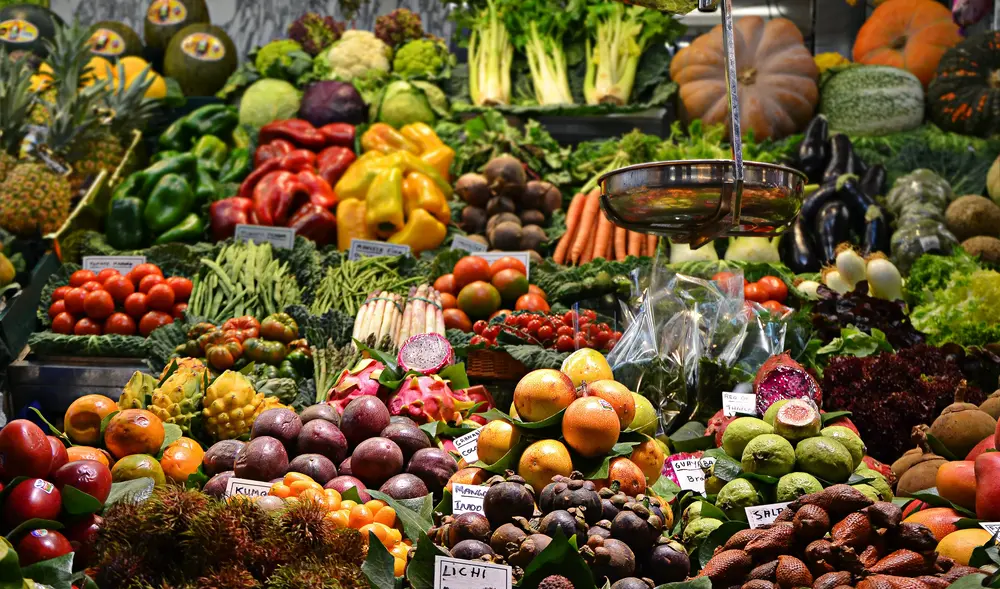Food loss and waste reduction policy in India: Role of private and public institutions

Every year India loses 40% of the annual food produce valued at USD 14 billion due to fragmented food systems and inefficient supply chain infrastructures[1]. India’s per capita food waste stands at a staggering 50 kg per year[2]. Additionally, over 190 million people remain undernourished in the country. The lost and wasted food adds up to the climate crisis. Over 10% of global greenhouse gases are caused by food loss and waste[3]. Thus, managing food loss and waste is of prime importance to India, now more than ever, when the COVID-19 pandemic has both exposed the problem and compounded it. In the Indian lockdown of 2020, when several unemployed migrant workers died on the way back to their native villages to avoid starvation in big cities, over 1550 ton of food grains were damaged[4]. Given the gravity of the problem, the role of private and public institutions becomes crucial. They will have to take immediate comprehensive actions and be in sync with each other to reduce food loss and waste in India substantially. To begin with, the understanding of food loss and food waste as different processes is important to address the problem more systematically and appropriately. Although there is a lack of clear distinction between the two, food loss generally happens from the farm up to the retail level in the production, storage, processing, and distribution stages. It is usually the unintended consequence of storage, infrastructure, packaging, and marketing limitations. Food wastage, on the other hand, is the loss of food at the retail, food service, and household level. It is usually the outcome of negligence or the decision to throw food away[5].
Role of Policy
Policy interventions play a significant role in managing food loss and waste. In India, the government has implemented SAMPADA (Scheme for Agro-Marine Processing and Development of Agro-Processing Clusters) - the national policy for developing an integrated cold supply chain for agricultural products - in collaboration with public and private stakeholders. Perishable products like fruits and vegetables[6] require immediate policy interventions. The government’s new scheme ‘Operation Greens’ can develop more integrated solutions from the learnings of ‘Operation White’ (milk is lost only 0.92%). A sub-national level policy to incentivize farmers for better harvesting practices will reduce food loss. Experiences suggest that improved aggregation of farmers through farmer producer organizations (FPOs) and the reduced time gap between harvesting and sale can reduce the food loss in the supply chain[7]. Adequate policy measures such as ‘food for assets’ promoting afforestation, community infrastructure development, etc., can help reduce the food waste at the consumer level. Above all, the need of the hour is evidence-based policies, accurate measurement of food loss and waste, and a national food processing policy. Policymakers and institutions need to cooperate with private institutions, including civil society and other stakeholders, to address the problem holistically.
Role of Private Institutions
Experiences from parts of the world can help India adopt the best practices in the field. Sonae, a Portuguese multinational business group, and Boston Consulting Group (BCG)[8] collaborated and developed methods that would help Sonae reduce food loss and waste across its supply chain by one-third, roughly 12,000 tons of fruits and vegetables, resulting in a USD 10 million savings every year. Private institutions can enhance their supply chain networks and reduce food loss and waste by adopting best practices like Sonae. Investment and interventions from private stakeholders in modern storage/cold chain facilities in the poultry and dairy sector have reduced the losses despite their high perishability. These experiences can be adopted for grains, fruits, and vegetables. Private institutions can also bring in the latest innovations. Innovative ideas like ‘Adrish’- India’s first zero-waste concept store, can be scaled up to increase their impact and reduce food loss and waste. Adarsh stresses shifting people from harmful, artificial consumption to an eco-friendly, zero-waste lifestyle[9].
Civil society plays an important role as well. Continued cooperation with the government can identify potential new hotspots regarding food and nutrition security and help fill the blind spots. Behavioral change is significant to cut food loss and waste. Campaigns to encourage people to switch from buying in excess to buying enough, ordering consciously from restaurants, limiting buffet systems in weddings, setting up community fridges, and encouraging people to donate their extra food to the needy are some of the ways which, if scaled up, have the potential to reduce food loss and waste significantly.
Role of Public Institutions
Post-harvest storage in India is mainly entrusted with public institutions like the Food Corporation of India and the warehouse authorities of the government. While the storage capacities have increased over the years, food losses have continued. Newer approaches, like setting up modern silos of steel, can ensure the movement of grains in specific wagons, resulting in an almost complete reduction of food loss during storage and movement[10]. The government has built modern silos of 0.825-million-ton capacity so far. Public institutions need to push for investments and build partnerships with private partners to reach 10 million tons of silo capacity.
Public institutions need to adopt the philosophy of ‘what gets measured gets managed’. Public authorities are the custodians of public trust and confidence in a democracy, and they must develop a transparent mechanism in order to standardize procedures to measure food loss and waste.
Conclusion
India’s vulnerability to climate change and increased occurrence of extreme environmental events presents a severe challenge to the country’s food and nutrition security. COVID-19 has pushed millions of people into poverty again. The continued food loss and waste will derail India’s progress in mitigating climate change and fulfilling Sustainable Development Goals. Hence, private and public institutions must engage together to facilitate target setting at local, regional, and national level. They should raise awareness, focus on efforts, mobilize resources and guarantee action.
[1] Shrivastava, R. (2020, December 22). India grows more food, wastes more, while more go hungry. India Today
[2] https://www.indiatoday.in/india/story/india-grows-more-food-wastes-more-while-more-go-hungry-1752107-2020-12-22
[3] Dubey, M. D. (2021, March 10). Waste and Want: 50 kg of food a person wasted every year, while 14% Indians malnourished. Gaonconnection | Your Connection with Rural India. en.gaonconnection.com/hunger-crisis-in-india-malnutrition-un-food-waste- index-report-2021/
[4] IPCC. (2019, August 8). Land is a Critical Resource, IPCC report says. https://www.unep.org/news-and-stories/press-release/land-critical- resource-ipcc-report-says
[5] Vikram, K. (2020, October 5). 1,550 tonnes food grains wasted at FCI godowns during lockdown, says government data. The New Indian Express. https://www.newindianexpress.com/nation/2020/oct/05/1550-tonnes-food-grains-wasted-at-fcigodowns-during-lockdown-says- government-data-2205893.html
[6] Lipinski, B. (2013, June 5). By the Numbers: Reducing Food Loss and Waste. Www.wri.org. https://www.wri.org/insights/numbers- reducing-food-loss-and-waste
[7] Over 4.58%-15.88% Fruits and Vegetables produced annually in India are lost and wasted which also the highest for any food category.
[8] Abecasis, M., Felde, A. M. zum, & Pralle, A. (2021, January 8). A Recipe to Reduce Food Loss and Waste. BCG Global. https://www.bcg.com/publications/2020/recipe-to-reduce-food-loss-and-waste
[9] Zacharias, T. (2021, April 7). India has a food wastage problem. Here’s how individuals can make a difference. The Indian Express. https://indianexpress.com/article/opinion/columns/food-waste-index-report-india-coronavirus-hunder-index-7261909/
[10] Hussain, S. (2021, January 3). Questions We Should Be Asking About Food Wastage in the Govt’s Procurement Process. The Wire. https://m.thewire.in/article/agriculture/food-procurement-wastage-questions/amp? twitter_impression=true

About the author
Mani is a Public Policy professional with a background in Law. He recently graduated with a Masters of Public Policy from the Willy Brandt School of Public Policy, Germany. He has first-hand experience with issues surrounding sustainability.
~ The views represented in this blog post do not necessarily represent those of the Brandt School. ~